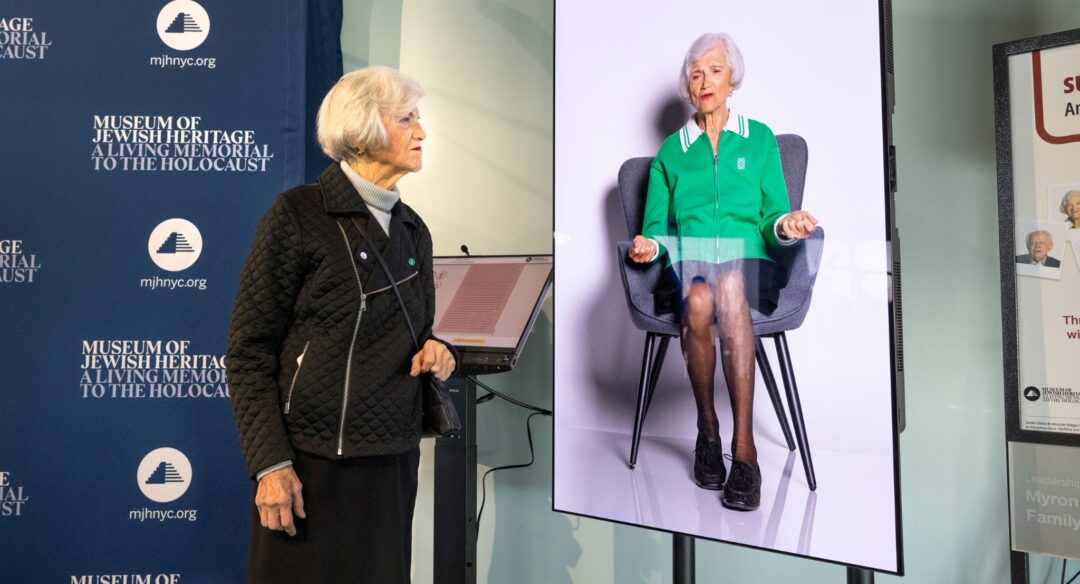Get the latest food, drinks and things to do news directly to your inbox. Subscribe Now
Using remarkable AI-driven technology, the Museum of Jewish Heritage — A Living Memorial to the Holocaust in Battery Park City just launched a new installation that lets visitors have conversations with ten different Holocaust survivors.
“Survivor Stories: An Interactive Dialog,” also available as an online resource right here, leverages non-generative AI technology that is completely devoid of manipulation to allows people to engage in talks with pre-recorded messages by the survivors.
The subjects sat down for in-person interviews at the museum back in the summer, answering an “extensive list of interview questions” developed alongside partnering institutions USC Shoah Foundation and USC Libraries, according to an official press release.
The employed technology allows visitors and website users to ask questions and receive corresponding video answers based on those interviews. Needless to say, the system “does not interpret, imagine, manipulate nor generate new or composite responses.” It will feel like a real-life conversation, fueled by actually spoken words.
The project is of utmost importance for many reasons: not many people have easy access to Holocaust survivors, first and foremost. Allowing folks from all over the world to use the resource online will certainly help spread the survivors’ message further.
In addition to that, the ten tapped survivors, each one belonging to the museum’s Speakers Bureau, were all kids at the time of the Holocaust but are now nonagenarians ranging in ages between 90 and 98. They are the very last generation of Holocaust survivors, one that is rapidly diminishing as the years go by. It is more important than ever to remember and keep sharing their stories.
“Our Speakers Bureau has played an essential role in the museum’s mission to educate students about the Holocaust,” said Dr. Paul Radensky, the Senior Director for Education at the museum, in an official statement. “Meeting a survivor and hearing from that person a firsthand account of lived experience has a profound impact on young people. It helps develop their sense of empathy and a deeper level of knowing like no history book can.”



